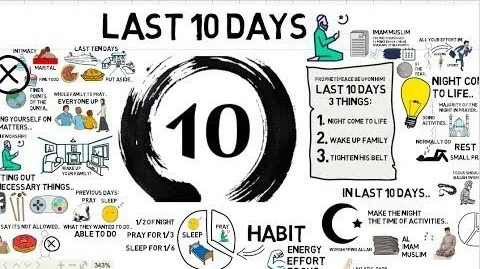As the blessed month of Ramadan gradually nears its end, Muslims worldwide engage in a period of introspection, assessing their spiritual journey over the preceding days. However, amidst the noble aspirations for self-improvement, it’s not uncommon to encounter moments of distress and regret, where one may feel they have fallen short in meeting their spiritual goals.
These sentiments often manifest as a profound sense of guilt – a guilt stemming from the perceived failure to engage in acts of worship with the intensity and consistency desired. Whether it’s the gnawing feeling of not having immersed oneself enough in the recitation of the Quran, the lamentation over missed opportunities for prayer, or the pang of remorse for not contributing adequately to the welfare of others, these emotions can weigh heavily on the conscience.
Yet, within the depths of this turmoil lies a profound truth: the very essence of these feelings signifies a journey towards deeper consciousness of Allah, known as taqwa. It is said that a heart illuminated by faith grieves over its shortcomings in service to the Divine, and it is a testament to the inherent love and longing for spiritual growth.
In these final nights of Ramadan, it’s essential to shift the narrative surrounding guilt and inadequacy. Rather than viewing them as indicators of failure, they should be embraced as catalysts for growth and introspection. Instead of burying oneself in self-condemnation, one should recognize that these feelings stem from a sincere desire to draw closer to Allah and to embody His teachings more fully.
Indeed, it is imperative to acknowledge that perfection belongs solely to Allah, and He does not expect flawlessness from His creation. Rather, He values and cherishes our sincere efforts, regardless of their perceived imperfections. Our tears, born out of a longing for spiritual fulfillment, are not signs of weakness but rather manifestations of our deep-seated love for the Divine.
As we navigate the final days of Ramadan, let’s release ourselves from the shackles of guilt and embrace the acceptance and love of our Creator. Let’s focus not on the shortcomings of the past but on the potential for growth and transformation that lies ahead. By channeling our remorse into motivation for positive change, we can harness the transformative power of this sacred month to renew our commitment to faith, compassion, and service to humanity.
In the words of the renowned poet Rumi, “Come, come, whoever you are. Wanderer, worshipper, lover of leaving. It doesn’t matter. Ours is not a caravan of despair. Come, even if you have broken your vows a thousand times. Come, yet again, come, come.” So, let’s heed this call to embrace our imperfections and journey forth with hope, resilience, and unwavering faith in the mercy and guidance of Allah.


